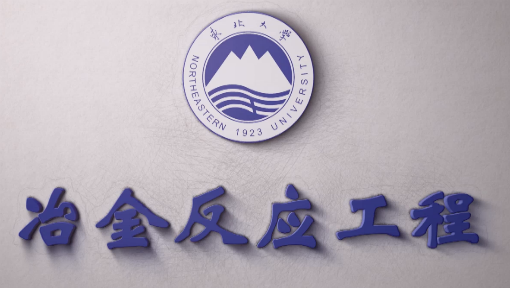
当前课程知识点:Research Methods in Tourism Studies > Week 2 Qualitative versus Quantitative Approach > 2.2 Differences between the Two Approaches > 2.2.1 Differences between the two approaches
返回《Research Methods in Tourism Studies》慕课在线视频课程列表
返回《Research Methods in Tourism Studies》慕课在线视频列表
欢迎回来
我相信在上一节中
我们对不同的研究范式有了更好的理解
如果你还记得的话
我们提到了两个主要的研究范式
第一个是实证主义
第二个是建构主义或解释主义
同时 我们也了解到
定量研究主要运用实证研究范式
定性研究主要落在解释主义研究范式上
在这一节中
我们将分享更多
关于定量和定性两种研究方法之间的差异
这两个表中
说明了两种主要研究方法之间的差异
对于定量研究方法
我们需要检验研究者最初提出的假设
这些概念是以不同变量的形式出现的
在收集数据之前系统地定义并予以标准化
数据是以精确测量得到的数字的形式存在的
理论在很大程度上是因果相关的并通过演绎的方式得来的
程序是标准的 重复是经常的
这意味着一个好的研究 好的定量研究
经过稍加改动是可以在其他地方复制的
通过使用统计数据 表格或图表进行分析
并讨论它们与假设之间的关系
对于定性研究方法
一旦研究者沉浸在数据中时
会捕捉并发现其意义
相比之下 对于定量研究而言
研究人员在研究中的参与有限或尽可能少
他们将用软件和数据来讲述故事
然而 对于定性研究
研究者们实际上是沉浸在此过程中
并用自己的方式来解释数据
概念化的形式有主题、主类属、概括和分类
测量是以一种特别的方式创建的
通常是针对个人设置或研究人员的
与定量研究相比
如果我们想解释这些制约因素
比如说中国游客选择国内旅游目的地和
国际旅游目的地相比
制约因素可能会有很大的不同 对吧
从文献、观察和文本中提取而来的文字和图像形式的数据
理论上可以是因果或非因果关系 并且通常是归纳性的
由于研究程序是特殊的 所以复制是很难的
分析的过程是从证据中提取主题或概括
并组织数据以呈现连贯一致的画面
现在让我们来看看旅游业和酒店业的研究趋势
究竟是定量研究多还是定性研究多
如果我们看看这个饼状图
59%的研究都是定量研究
相比之下 有19%的研究采用定性研究方法
也有一些综述类或基于理论研究的论文
有6%的论文使用混合研究方法
此外
游客或访客研究大都是定量的研究
目的地研究比其他主题更有可能使用定性设计
旅游规划则更倾向于采用混合研究方法
《Journal of Travel Research》中采用定量研究的比例最高
而《Annals of Tourism Research》中采用定性研究的占比最高
为60%
虽然定性研究的数量在不断增加
但定量研究仍然主导着酒店和旅游研究
混合方法越来越流行
我们也将在本章中介绍这一点
现在 我们对这两种不同的方法有了一些基本的了解
那么 每种研究方法的优缺点到底是什么
现在让我们来具体看看
对于定性研究
由于其探索性的本质 在研究的早期阶段非常有用
我们可以灵活地让研究更自然地开展
我们拥有更详细和丰富的数据
这意味着我们获得了
诸如书面描述、照片、音频或面部表情等数据
我们利用这些语境和社会意义
来理解它们是如何影响这些个体的
另一方面 定性研究也可能有一些缺点
例如 研究者大量参与了这一过程
对研究及其参与者会有主观看法
与定量研究相比 这些观点有时有失偏颇
不同的研究者会有不同的方法来解释数据
如前所述 定性研究可能非常耗时和费力
考虑到数据收集、转录、分析和解释等阶段
相比之下 对于这些定量研究
我们有以下几点要说明
例如 我们可以使用可测量的数据
和统计数据来帮助我们呈现这些发现
对于定量研究
我们能够探索自变量和因变量之间的关系
与定性研究相比
定量研究更像是一种客观的研究
因为研究者本身参与较少
我们用数据来讲述这个故事
在定量研究中
我们需要进行假设检验
而这些假设主要来源于文献
以下是定量研究的缺点
定量研究被认为忽略了研究或实验的背景
例如研究背景、不同的人或种族
所以它对这些个体差异没有什么意义
同时 定量研究对样本的要求也很高
如抽样方法 样本量 普遍性等
你能实现或者你可以获取这些数据吗
或者你有足够的钱或人力来进行这些调查吗
最后 定量研究在很大程度上与这些统计数据有关
这意味着它确实非常依赖这些数据
因此 一些研究者可能认为
定量研究在很大程度上是数据引导的
好的 这是本节的结尾
我希望你能更好地理解
这两种主要研究方法之间的差异
-1.1 Research Question and Research Objectives
--1.1.1 Student interview before class
--1.1.2 The starting point: question
--1.1.3 What is a good research question?
--1.1.4 Ways to find a good research question
-1.2 Title Design
--Acticle: Leisure & Travel as Class Signifier: Distinction Practices of China's New Rich
--Discussion: Why do we research?
-1.3 Literature Retrieval Method and Literature Databases
--1.3.1 Common literature retrieval method
--1.3.2 Common literature search database
-1.4 Information Collection and Academic Journals in Tourism
--1.4.1 Academic journals in tourism research
--1.4.2 Literature collection methods and principles
-1.5 Literature Reading
--1.5.2 Overcoming obstacles in literature reading
--Week 1 quiz
--Discussion: What difficulties have you encountered in reading literature?
-2.1 Philosophical Bases of the Two Approaches
--2.1.1 Philosophical bases of the two approaches
-2.2 Differences between the Two Approaches
--2.2.1 Differences between the two approaches
--Article: Does tourist–host social contact reduce perceived cultural distance?
-2.3 Be Aware of Your Own Research Views
--2.3.1 Be aware of your own research views
--Discussion: How to choose research method?
-2.4 Research Example: Social Tourism
--2.4.1 What is social tourism?
--2.4.2 Established frameworks on social tourism
--2.4.3 Major research findings on social tourism
--2.4.4 Major findings of social tourism research
--2.4.5 Opportunities and challenges for social tourism
--Week 2 quiz
- 3.1 Key Procedures in Qualitative Approach
--3.1.1 Key procedures in qualitative approach
-3.2 Qualitative Data Collection and Analysis
--3.2.1 Key procedures and data collection methods in qualitative approach
--3.2.2 Data collection and analysis in qualitative approach
--3.2.3 Data analysis in qualitative approach
-3.3 Case Study and Content Analysis
--Discussion: Have you ever used a qualitative approach in your research?
-3.4 Using Coding and Themes in Qualitative Research
--3.4.1 Using coding and themes in qualitative research(1)
--3.4.2 Using coding and themes in qualitative research(2)
-3.5 Using Conceptual Framework in Qualitative Research
--3.5.1 Using conceptual framework in qualitative research(1)
--3.5.2 Using conceptual framework in qualitative research(2)
--Article: Tourist typology in social contact: an addition to existing theories
--Week 3 quiz
--Discussion: How to ensure the reliability and validity of qualitative study?
-4.1 Using Questionnaires in Quantitative Research
--4.1.1 Make an effective literature review and research method design
--4.1.2 Learn to write powerful findings and discussion
-4.2 Using Experiment in Quantitative Research
--4.2.4 Eye tracking experiment
-4.3 Using Mixed Method
--4.3.1 Sustainabble tourism development (1)
--4.3.2 Sustainabble tourism development (2)
--Article:Creating a scale for assessing socially sustainable tourism
--Week 4 Quiz
--Discussion: How to use quantitative methods to study tourists' reaction?
-5.1 Current Research Priorities
--5.1 1 A review of hospitality research
--5.1.2 Impact of information technology on hospitality and tourism research
-5.2 Multi-Level/ Multiple Sources of Date Collection
--5.2.1 Experimental design (1)
--5.2.2 Experimental design (2)
--5.2.3 Multi-level/multiple sources of data collection
-5.3 Mixed Method and Interdisciplinary Research
--5.3.2 Interdisciplinary research
--Article: The meanings of destination: a Q method approach
--Discussion: Can you talk about your understanding of research methods?
-5.4 Using Delphi Method in Research Design
--5.4.1 What is the Delphi method?
--5.4.3 Characteristics of the Delphi method
--5.4.4 Predicting the future of wine tourism
--Week 5 quiz
--Discussion: Philosophical basis of research methods
-6.1 Journal Publication
--6.1.1 How to publish in the top journals? (1)
--6.1.2 How to publish in the top journals? (2)
--6.1.3 How to publish in the top journals? (3)
--6.1.4 How to publish in the top journals? (4)
--Article: Analyzing the economic sustainability of tourism development: evidence from Hong Kong
-6.2 Academic Ethics
--6.2.2 Student interview after class
--Week 6 quiz
--Discussion: Academic publication and academic ethics
--Final quiz
